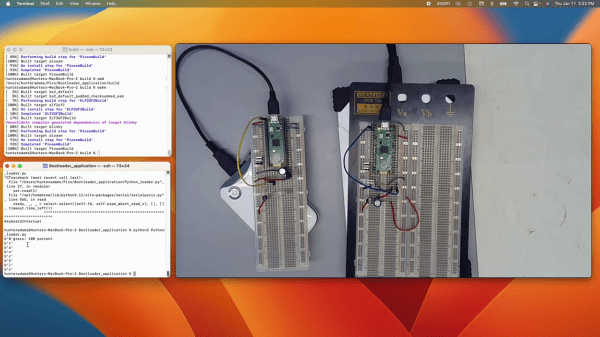[Hunter Adams] has written a secondary bootloader for the RP2040 that uses an IR link and can be extended to behave like a polite worm virus. This allows the easy updating of a large cluster of co-located RP2040-based controllers. This could be handy in applications like swarm robotics or virtual cattle fencing. The project he demonstrates in the two videos ( below the break ) uses a pair of IR transmitters/receivers. But he purposely wrote the boot loader to be independent of the serial link, which could be infrared, radio, audio, or just wires.
Not only did [Hunter] make a boot loader, but he documented the entire boot process of the RP2040 chip. Whether or not you need a secondary bootloader, this is an excellent resource for understanding how the RP2040 responds to power cycling and resets. The boot loader code is available at his GitHub repository.
You may recall that [Hunter] is the lecturer of Cornell University’s Designing with Microcontroller classes, whom we’ve mentioned before. We’ve also covered some of his students’ projects as well, like these air drums and this CoreXY pen plotter.












